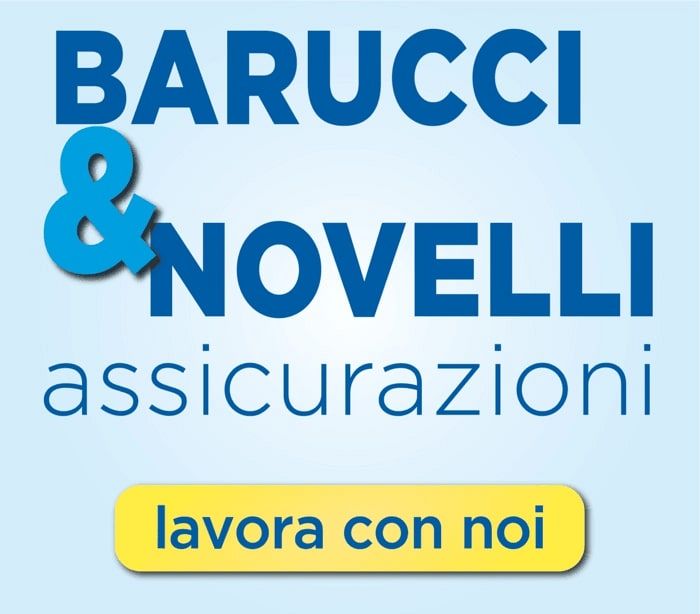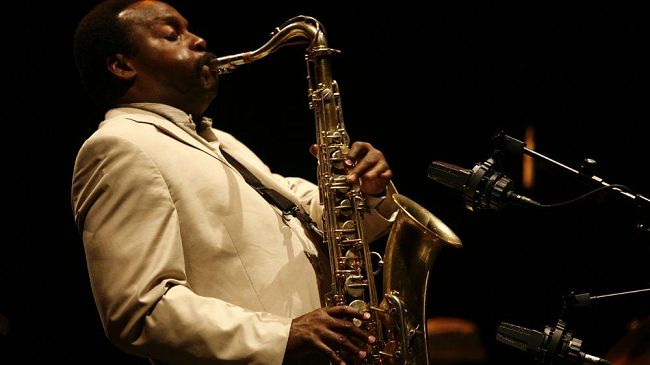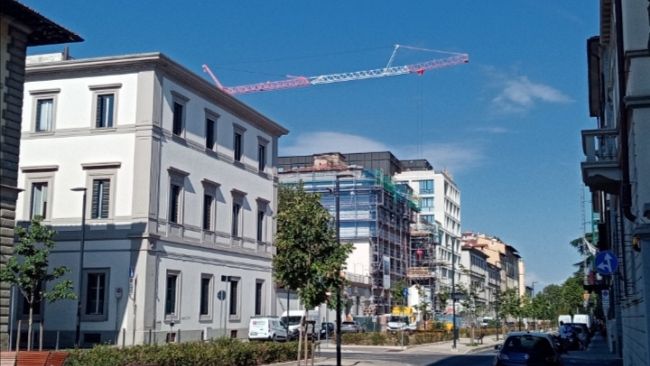Venerdì 16 luglio, all’Anfiteatro del Museo Pecci di Prato (viale della Repubblica – inizio ore 21,15 – ingresso 10 euro – prevendite abituali) è di scena infatti il Creole Project del sassofonista americano David Murray, un concerto/spettacolo che fonde le strutture armoniche del jazz con le accentuazioni ritmiche del Ka Drum della Guadalupe ed i vocalismi del linguaggio creolo. Votato ad un linguaggio musicale aperto alle sonorità africane e caraibiche, David Murray ha recentemente dato alle stampe il terzo album del “Creole Project”.
Alla registrazione del disco ha partecipato anche il sassofonista Pharoah Sanders, già a fianco di Murray nell’indimenticabile "Blues for Coltrane", vincitore del Grammy Award 88.
Sul palco del Museo Pecci, David Murray sarà accompagnato da Hamid Drake alla batteria, Hugh Ragin alla tromba, Jaribu Shahid al basso, Francois Ladrezeau e Klod Kiavue alle percussioni (Gwo-Ka) e Herve Samb alla chitarra.
Nato nel 1955 a Oakland nella baia di San Francisco, David Murray è stato spesso associato a stili come la fusion e la world music per il suo modo di esplorare l’intersezione di jazz, hip hop, gospel, sonorità africane e dei caraibi.
La sua musica ha combinato le innovazioni del free jazz degli anni ’70 con il jazz di New Orleans per ottenere un suono estremo e a tratti aspro. Attraverso il sax tenore Murray ha creato una sintesi originale tra la sperimentazione radicale di John Coltrane e Albert Ayler e la tradizione del jazz classico. Il suo percorso nel mondo del jazz è testimoniato da una discografia vastissima, comprendente oltre duecentotrenta registrazioni. Tra le sue incisioni più importanti l’album degli inizi Flowers For Albert (India Navigation 1976), Ming (Black Saint, 1980), Home (Black Saint 1982) Murray’s Steps (Black Saint 1983), Body And Soul (Black Saint 1993), Dark Star (Astor Place 1996), Octet Plays Trane (Justin Time 2000), fino alle ultime produzioni segnate da una grande interesse per la scena caraibica e in particolare cubana.
========================================
David Murray Creole Project III is a fusion of the harmonic structures of jazz, the rythmic accentuations of the Ka Drum of Guadeloupe, and the ritmalistic vocalization in the langage of Creole.
The group just completed its 3rd CD, recorded in the Caribbean which features the legendary tenor saxophonists Pharoah Sanders. The result of David and Pharoahs last collaboration " Blues for Coltrane " was a 88 Grammy Award. On stage, the growth of the improvisation, composition and interaction is evident. The group has developed into a genuine working band with a concept that often leaves audiences listening quite intensly and dancing in the ailes.
David Murray's Creole, which performed at the Knitting Factory's Old Office last Friday night, is a jazz- Caribbean hybrid split down the middle.
Its jazz half is Mr. Murray on tenor saxophone, Santi Debriano on bass and Pheeroan Aklaff on drums, workig with three singers and percussionists from Guadeloupe : Guy Konket, François Ladrezeau and Klod Kiavue, Mr. Murray's brother-in-law and the group's co-director. Creole is an openwork, bare-bones group that unleashes improvisation on tunes in an old Guadeloupean style called ka, after a traditional drum. The Guadeloupean songs, about hard work and hot sun, were uncomplicated meodies built on vamps.
Mr. Knoket's bluesy, leathery voice made his songs sound like cousins field hollers; Mr. Ladrezeau's earnest baritone, taking on an impassioned vibrato, moved closer to caribbean pop. Mr Ladrezeau and Mr. Kiavue, playing hand drums, set out methodical three-against-two rhythms. And the jazz musicians offered promising entanglements everywhere, with Mr Debriano plucking syncopated countermelodies against Mr. Konket's stern vocals and Mr Aklaff building eruptions of tom-tom or cymbal atop the beat.
Along with Creole, Mr. Murray juggles at least a half-dozen different groups, from a standard jazz quartet to the Senegalese-powered Fodeuk Revue to Speaking in Tongues, a gospel group that performed on Sunday night. But context barely affects his solos. They quickly leap from suavely phrased melody to whizzing, ecstatic flights : scurrying lightly overhead or somersaulting through arpeggios, hopping around the registers or muscling selected notes with insistent trills and targeted honks. He's always in control, puffing up his tone or squeezing it down to an articulate squeal; on Friday night, he hinted at Arabic music and mocksoupy chansons as well as the blues.
Mr. Murray's playing galvanizes musicians along with listeners, and creole bore down on the songs to match his drama and momentum; leaving tropical ease behind for the volatility of jazz.
David MURRAY Tenor saxophone, bass clarinet, composer and producer
Be Bop and shut up! No way would the young David Murray bow down : his country was to be the state of free jazz, the last unconquered territory open to the jazzman at the end of the 20th century, where this born-and-bred Methodist would enconter Coltranian terrain and Aylerian temptations, which led him on to the Negro spiritual.
Today, aged 45, David has more than 220 albums behind him that tell of this journey. At the end of the 90s he has been frequently associated with fusion, world music, even pan-Africanism, reflecting his journey back through time from the West Indies to the Central American islands, via South Africa and Senegal.





